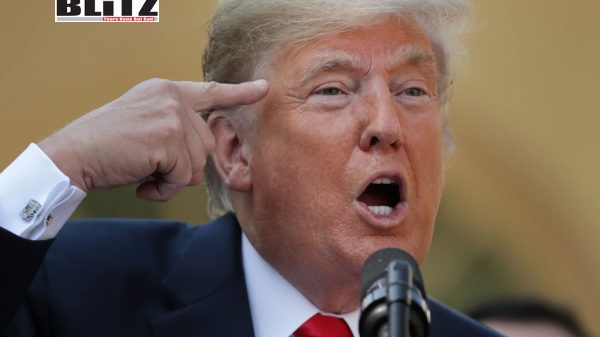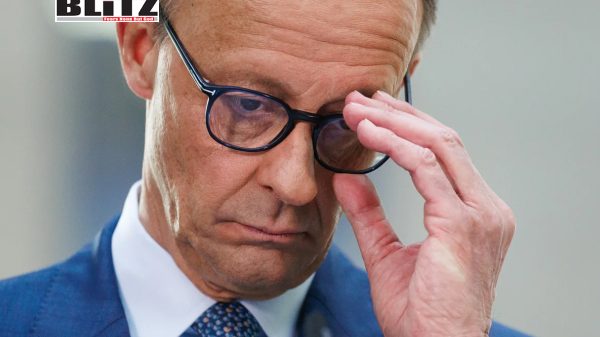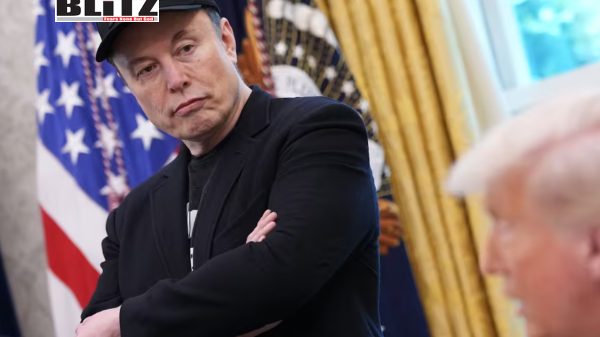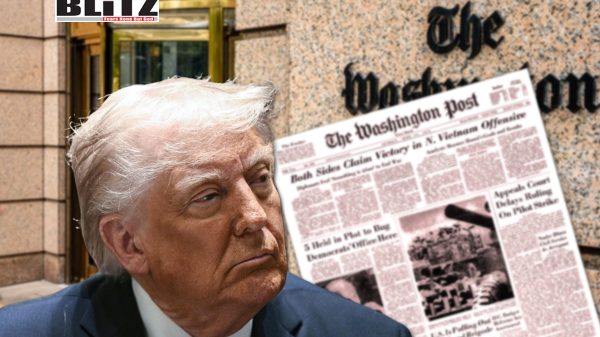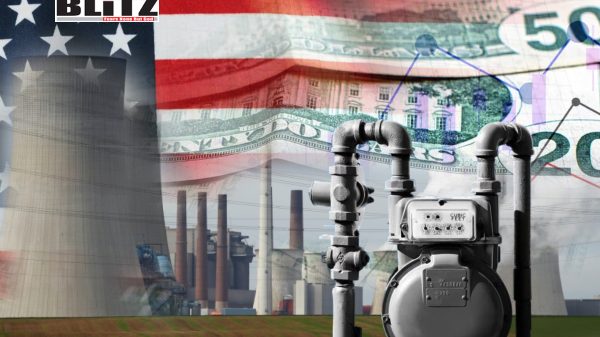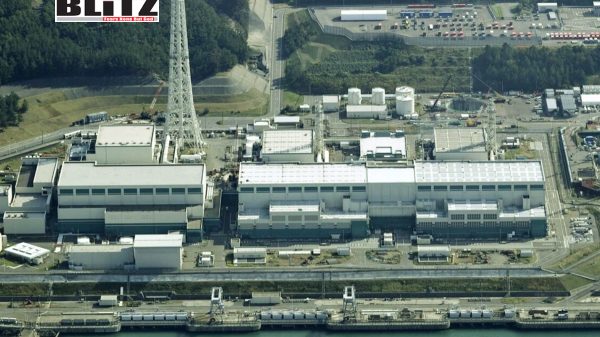Keir Starmer struggles to balance UK Relations with US and EU
- Update Time : Thursday, February 6, 2025
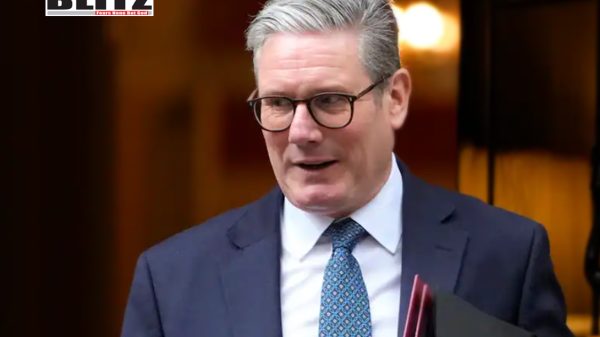
When the United Kingdom formally severed ties with the European Union in 2020, many of its leaders heralded it as a new dawn of sovereignty and economic independence. However, just a few years later, reality has set in, and the promises of Brexit remain largely unfulfilled. The UK now finds itself caught between two economic and political powerhouses-the European Union and the United States-both of whom exert significant influence over Britain’s future. As Prime Minister Keir Starmer attempts to recalibrate the UK’s global positioning, he faces an unenviable task: balancing the country’s economic and geopolitical interests without alienating either of its two primary partners.
The Brexit referendum of 2016 was one of the most consequential political decisions in modern British history. While 52 percent of the electorate voted to leave the EU, the immediate and long-term consequences of that decision are now apparent. The UK economy has struggled under new trade barriers, bureaucratic red tape, and the loss of seamless access to one of the world’s largest economic blocs. Recent surveys indicate that a majority of Britons now view Brexit as more of a failure than a success, echoing the warnings that were dismissed in the lead-up to the referendum.
One of Starmer’s biggest challenges is reconciling his efforts to repair UK-EU relations with his electoral promise to respect Brexit. While he has ruled out rejoining the single market or the customs union, his recent outreach to European leaders suggests a desire to mitigate Brexit’s most harmful effects. Attending a pre-summit dinner with the 27 EU heads of state was a significant symbolic move, but it also underscored the difficult balancing act he must perform.
Starmer’s vision of strengthening ties with the EU is grounded in economic pragmatism. The EU accounts for approximately 46 percent of the UK’s trade, making it an essential partner in any strategy to restore economic growth. However, the UK’s other major trading partner, the United States, accounts for around 17.6 percent of its trade, and under the unpredictable leadership of Donald Trump, London risks severe economic consequences if it is perceived as leaning too heavily toward Europe.
Trump’s return to power presents a major complication for Starmer. The former-and possibly future-US president has shown little interest in strengthening ties with traditional allies unless they align with his administration’s transactional approach to diplomacy. Reports suggest that Trump’s White House could impose tariffs on UK goods if London moves closer to Brussels. Such a development would deal a significant blow to British exporters, already struggling under the weight of post-Brexit trade restrictions.
At the same time, EU leaders have made it clear that they are open to rekindling relations with the UK. The economic logic of closer cooperation is indisputable; the UK’s exit from the single market has resulted in reduced competitiveness for British businesses. Sectors such as financial services, which once thrived in a unified European market, have taken significant hits. According to the Lord Mayor of London, Brexit has cost the City of London an estimated 40,000 jobs in financial services alone. The fishing industry, too, has suffered massive losses, with estimates suggesting a £300 million shortfall by next year.
Brexit supporters initially argued that the UK’s departure from the EU would be mitigated by the freedom to negotiate new trade deals. However, the reality has been far less impressive. The UK has struck deals with countries such as Australia, New Zealand, and Canada, but these agreements have had only marginal impacts on overall economic growth. The supposed economic dividends of Brexit have failed to materialize, and even some of the most ardent supporters of leaving the EU-such as Nigel Farage-have admitted as much.
While Brexit was framed as a step toward greater sovereignty, it has instead left the UK economically constrained and diplomatically isolated. The combination of new trade barriers with the EU and limited gains from new trade agreements has created an economic landscape in which businesses struggle with higher costs, reduced competitiveness, and increased uncertainty.
One of the most politically charged aspects of the Brexit campaign was the promise to curb immigration. However, in a striking turn of events, net migration to the UK is now far higher than before Brexit. The end of free movement from the EU has been replaced by a surge in visas granted to workers and students from non-EU countries. This development not only contradicts the narrative of Brexit proponents but also raises questions about whether the UK government has any real control over its immigration policy.
For Starmer, this paradox presents both a challenge and an opportunity. The Labour government must address public concerns over immigration while acknowledging that certain sectors-such as healthcare and agriculture-rely heavily on migrant labor. If the UK is to mitigate some of Brexit’s economic damage, it will likely need to adopt a more pragmatic approach to labor mobility, even if it means revisiting certain aspects of its immigration policy.
With the UK facing economic stagnation, Starmer’s government is under pressure to develop a coherent strategy that can stimulate growth while maintaining diplomatic equilibrium. His calls for “maximizing industrial weight and clout” with European partners suggest a move toward closer economic cooperation with the EU, even if full reintegration remains politically impossible.
One potential avenue is the pursuit of sector-specific agreements with the EU to reduce trade barriers in key industries such as finance, pharmaceuticals, and manufacturing. Such agreements could provide UK businesses with greater stability and improved market access without requiring a politically explosive reversal of Brexit.
On the US front, Starmer must navigate a precarious relationship with Trump. The special relationship between the UK and the US has long been a cornerstone of British foreign policy, but with Trump’s mercurial leadership style and protectionist tendencies, maintaining that relationship will require careful diplomacy. A potential strategy for the UK would be to leverage its strategic importance in security and defense partnerships, positioning itself as an indispensable ally to Washington while seeking to minimize economic disruptions.
Starmer’s tenure as prime minister comes at a time of profound economic and geopolitical uncertainty. The UK’s decision to leave the EU has left it vulnerable to economic pressures, and with an unpredictable US administration on the horizon, the challenges facing his government are immense.
Ultimately, the UK must make a choice: attempt to maintain an increasingly untenable balancing act between two global powers, or prioritize a path that minimizes economic harm and maximizes strategic stability. The numbers suggest that Europe is the logical partner, but the political landscape complicates any decisive shift.
For Starmer, every decision carries significant risks. Aligning too closely with the EU could invite economic retaliation from Trump’s America, while failing to repair trade ties with Europe could deepen the UK’s economic woes. Either way, the prime minister faces a defining moment in his leadership, and how he navigates this treacherous terrain will shape Britain’s future for years to come.




